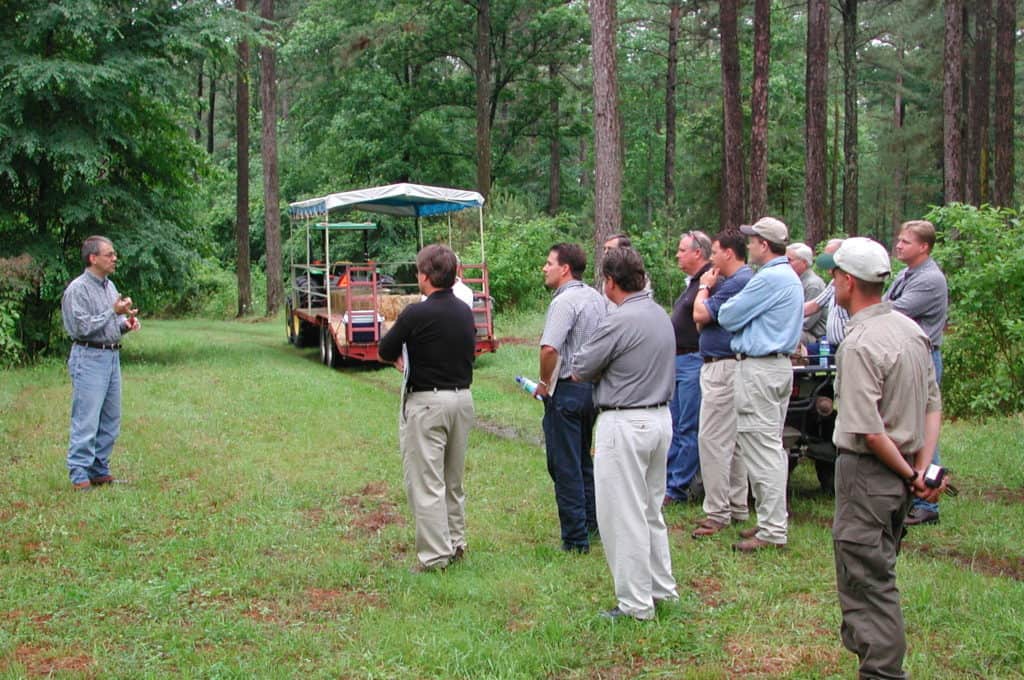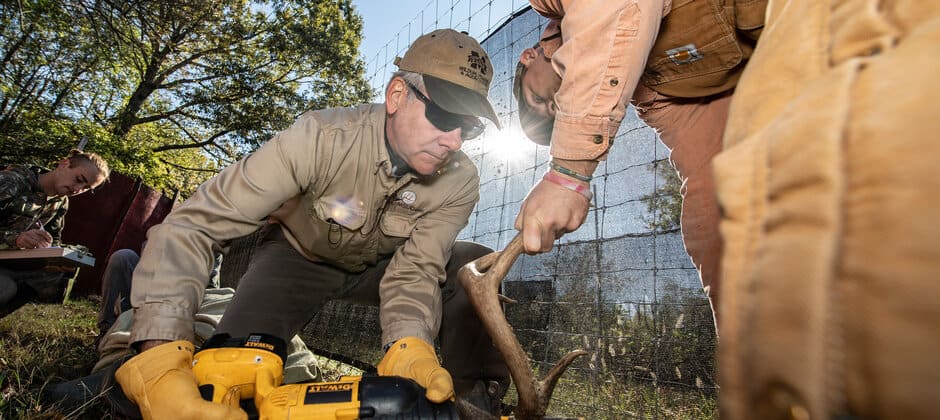Share this article
Steve Demarais wins Caesar Kleberg Award
For Steve Demarais, putting wildlife science into practice has been the most important.
That has meant closely tracking forestry treatments for decades of his career to figure out the best way to produce timber and maintain a high ecological diversity of plants for deer and other wildlife.
“I run with the applied results and promote those results to landowners, biologists and hunters. It’s always just been a big part of my job,” said Demarais, the Taylor Chair in Applied Big Game Research and Education at Mississippi State University. “If I can talk about my research and see enthusiasm in the eyes of the stakeholders I serve, it makes the work fun and exciting.”
His work with white-tailed deer (Odocoileus virginianus) and other ecological projects in the southeastern U.S. has prompted The Wildlife Society to present Demarais the 2021 Caesar Kleberg Award for Excellence in Applied Wildlife Research.
One of Demarais’ achievements in applied wildlife research involved an eight-year study documenting how forestry establishment practices in the Southeast were affecting wildlife. Herbicide use was a concern to environmentalists, and hunters expressed the loudest concern that deer were unable to thrive in the pine plantations.
“We showed them that the moderate amount of herbicide in the lower coastal plain region is actually positive for many wildlife values, including deer nutritional carrying capacity and avian density and diversity,” Demarais said. But they also found that a moderate amount was better for forest regeneration and forest ecology in general than having no herbicide at all. This was because using some herbicide discouraged the fastest growing shrubs that provided low nutritional value to deer, making way for more nutritious herbaceous plants. Timber companies now use less herbicide to benefit the environment and wildlife.

Steve Demarais gives a field tour. Courtesy of Steve Demarais
Demarais conducted additional work showing that using prescribed fires can maximize rejuvenation of the land to benefit deer and other wildlife species. Many major timber companies still don’t use prescribed fire due to liability and logistical issues, but Demarais’ and his colleagues’ management prescription has been adopted by many non-commercial timber landowners.
Demarais also reaches the public directly by co-hosting the Deer University podcast that has drawn up 250,000 downloads. The social media accounts of his team reach 40,000 followers through multiple platforms.
“Steve invests much time and effort in sharing the findings from his research with wildlife practitioners and enthusiasts,” said David Hewitt, executive director of the Caesar Kleberg Wildlife Research Institute in a nomination letter. “His research group has a website on which they make findings available in a user-friendly venue. He posts videos and participates in podcasts.”
A lifelong TWS member since serving as the University of Massachusetts student chapter president, Demarais has authored more than 150 peer-reviewed journal publications. One publication he co-authored describes how hunters can determine the ages of deer to improve the harvest of older bucks.
“Over Steve’s career he has tirelessly conducted meaningful research, and our students, professionals, and natural resources are better for it,” said TWS member Bronson Strickland, a wildlife biologist at Mississippi State University, in his nomination letter for the award.
Click here to see the complete list of award recipients.
Header Image: Steve Demarais cuts the antlers from a deer. Courtesy of Steve Demarais








